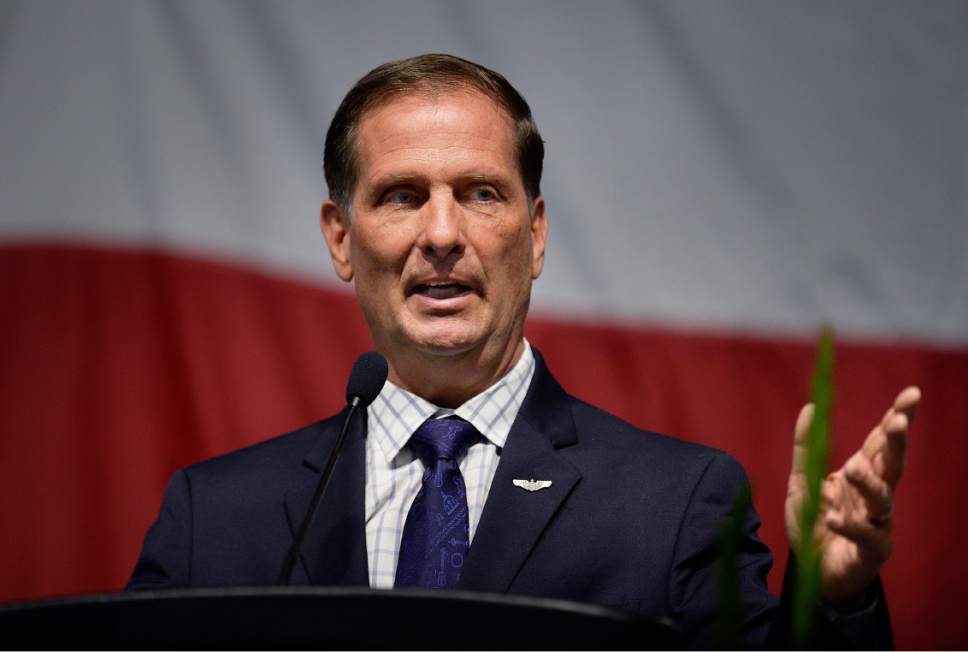This is an archived article that was published on sltrib.com in 2017, and information in the article may be outdated. It is provided only for personal research purposes and may not be reprinted.
During testimony Tuesday from former CIA Director John Brennan that strongly indicated otherwise, Republican Rep. Chris Stewart continued to assert that while Russia interfered in the 2016 U.S. election, the foreign government did not seek to boost Donald Trump's chances to win.
"I've reviewed the raw intelligence of the CIA regarding the analysis of whether they preferred Mr. Trump. I don't agree with the conclusion," the Utah congressman said during a meeting of the House Intelligence Committee.
A chorus of GOP committee members also focused its questioning on that point during the two-hour public hearing. When asked by one representative whether Russian officials sought to deflate Democrat Hillary Clinton's chances or bolster Trump's, Brennan concluded, "My assessment is it was both."
The CIA, NSA and FBI also reached that consensus in an intelligence report released in January, saying Russian President Vladimir Putin ordered a cyberassault on the election with a "clear preference" for Trump.
Stewart maintained that there should be "allowances made for some ambiguity in that" because not every intelligence agency agreed with the assessment. The congressman said Russia wanted a "weakened president" in office, "regardless of who it is."
"Wouldn't you say that's true?" Stewart asked the former CIA director.
"One can argue the point that a stronger president is able to have an accommodation with Russia out of strength as opposed to out of weakness," Brennan replied.
In his testimony, Brennan revealed a growing concern about interactions between Russian officials and associates of Trump's campaign that he said warranted FBI investigation, though it's possible the contacts were harmless. He spoke to the director of that country's Federal Security Service, advising that any interference in the election was "certain to backfire."
"They undertook the activities despite our strong protests and explicit warning they not do so," Brennan said.
In early January, Brennan briefed then-President Barack Obama and Trump about the intelligence findings, including attempts by Russia to directly influence U.S. citizens to "act on their behalf, wittingly or unwittingly." It's unclear, he said, how successful that was.
Trump has continued to deny collusion with the foreign government and has tried to enlist U.S. agencies and officials to contest such stories, according to national news reports. Meanwhile, his National Security Adviser Michael Flynn was fired after less than a month on the job after it was disclosed that he had misrepresented his discussions with the Russian ambassador to the United States.
While Stewart doesn't doubt interference in the election through various avenues, he told The Salt Lake Tribune on Tuesday night, his hang-up is on Russia's ultimate aim. The congressman is certain after spending "hours and hours" going through intelligence reports that while the foreign government "didn't like Hillary Clinton, it's a very difficult equation to say whether they were trying to do things to harm her or whether they were trying to do things to help Mr. Trump."
He remains unpersuaded that Russia's intentions were so clear cut as to favor one candidate.
As part of its monthslong probe into possible collusion between Trump and Russia, Stewart said the House Intelligence Committee will continue to talk to "several dozen witnesses" with a wrap-up anticipated in the fall.
Twitter: @CourtneyLTanner



